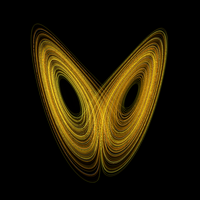What do we mean by saying that existence precedes essence? We mean that man first of all exists, encounters himself, surges up in the world--and defines himself afterwards. If man as the existentialist sees him is not definable, it is because to begin with he is nothing. He will not be anything until later, and then he will be what he makes of himself. Thus, there is no human nature, because there is no God to have a conception of it. Man simply is. Not that he is simply what he conceives himself to be, but he is what he wills, and as he conceives himself after already existing--as he wills to be after that leap towards existence. Man is nothing else but that which he makes of himself.
"Existentialism and Humanism" by Jean-Paul Sartre. Trans. Philip Mairet (Brooklyn: Haskell House Publishers Ltd., 1977), pp. 23-56. First published in French in 1946 under the title "L'Existentialisme est un humanisme."
...i am, therefore I think?
Subscribe to:
Post Comments (Atom)

2 comments:
If there is no human nature, then you do not have a grounds to base anything on man. You saying there is no human nature is you essentially saying you have grounds for determining this. To determine this means you have to have an idea or concept of human nature. Man can not make himself if he doesn't have a form of human nature. Your argument then is self refuting. Which leaves the rest of your statements the same because to say there is no human nature or their is no God you have to have a concept or idea of them and seeing how neither exist to you, you can not logically make the claims (statement): There is no human nature. There is no God. So now one must question all your logic.
i AM NOT saying anything. this is from Sartre's "Existentialism and Humanism" (which really is a mistranslation of the title; the true translation is "Existentialism IS a Humanism" - the meaning is quite different in French.)
my 'comment' is at the end in the form of a question of Sartre's position - "...i am, therefore I think?" a reversal of the Cartesian "Cogito ergo sum." ie 'I think therefore I am.' Descarte's theorem was unproven by others well before Sartre, because his premise was the existence of god proved that he could think and that proved that man exists. - the a priori part.
i am wondering if Sartre's theorem has the same problem as Descarte's.
he is saying that you need no god to prove you exist; you exist solely from the fact that you exist, but the fact that you cannot prove you exist except by defining yourself after presuming you exist proves your existence. that, then, means that you define what human nature is, so there is NO a priori knowledge in either explanation. things are because they are OR because they are not...
Post a Comment